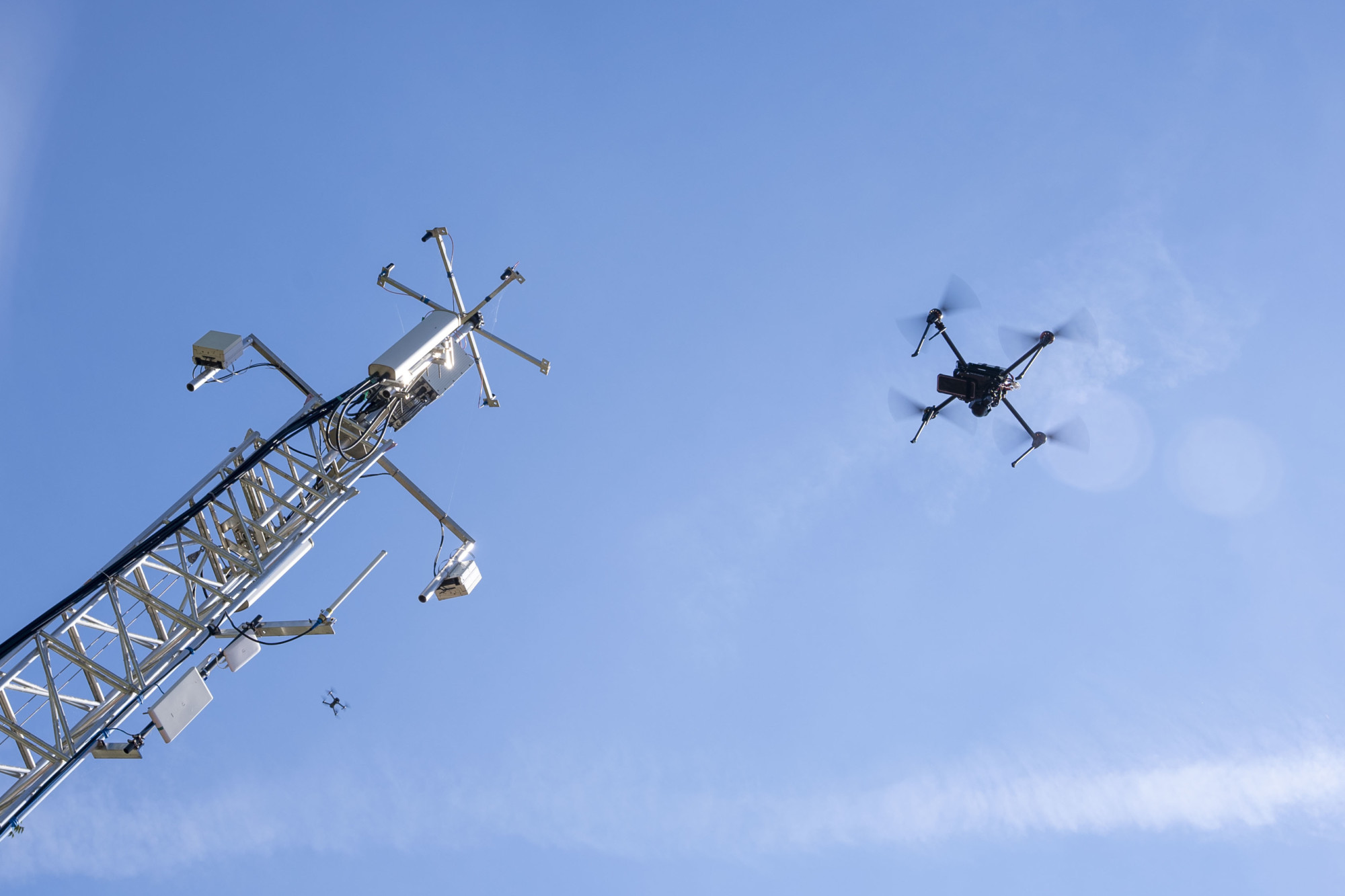
Doctoral Student Receives NSF Graduate Research Fellowship
Congratulations to Cole Dickerson, just named a 2024 recipient of the NSF Graduate Research Fellowship, supporting his work on unmanned aerial platforms with AERPAW.
April 8, 2024 ![]() Charles Hall
Charles Hall
Cole Dickerson, an electrical engineering Ph.D. student advised by Ismail Guvenc, professor of electrical and computer engineering, has been awarded a prestigious Graduate Research Fellowship from the National Science Foundation.
The purpose of the NSF Graduate Research Fellowship Program (GRFP) is to help ensure the quality, vitality, and diversity of the scientific and engineering workforce of the United States. A goal of the program is to broaden participation of the full spectrum of diverse talents in STEM. The five-year fellowship provides three years of financial support.
“I’m very grateful to have had wonderful advisors here at NC State and during my undergraduate career. Dr. Ismail Guvenc, who is my Ph.D. advisor, and Dr. Dror Baron both encouraged me to apply for the fellowship and helped me through the revision process,” thanked Dickerson. “Dr. Tarek Abdel-Salam and Dr. Zhen Zhu at East Carolina University wrote wonderful letters for me and helped me build a CV that was competitive for this award. Winning this fellowship wouldn’t have been possible without all of their help and support. I am also very appreciative of the NSF for investing in me and, by extension, the AERPAW group.”
Based at NC State, AERPAW—Aerial Experimentation and Research Platform for Advanced Wireless—is the first wireless research platform to study the convergence of 5G technology and autonomous drones. AERPAW is funded by a $24 million grant, awarded by the PAWR Project Office on behalf of the National Science Foundation, to develop an advanced wireless research platform, led by NC State, in partnership with the Wireless Research Center of North Carolina, Mississippi State University and Renaissance Computing Institute (RENCI) at the University of North Carolina at Chapel Hill; additional partners include Town of Cary, City of Raleigh, North Carolina Department of Transportation, Purdue University, University of South Carolina, and many other academic, industry and municipal partners.
Unmanned aerial vehicles (UAVs) have garnered significant attention and enthusiasm for their diverse applications such as delivery services, agricultural monitoring, establishment of aerial base stations, search-and-rescue missions, and enforcement of wireless spectrum regulations. With the increasing proliferation of advanced UAV technology, airspace congestion is becoming a pressing concern, necessitating the establishment of a robust air traffic management system.
In response to this challenge, various government entities, industry leaders, and drone manufacturers are collaborating to develop a dependable and secure UAV Traffic Management (UTM) system. Amidst these efforts, Dickerson aims to investigate the integration of search-and-rescue operations and spectrum monitoring into the UTM framework.
Both search-and-rescue missions and spectrum enforcement rely on signal source search and localization capabilities, wherein UAVs are tasked with pinpointing signals from mobile phones of missing individuals or identifying signal jammers, respectively. Leveraging the advantages of higher altitude signal capture and the autonomous 3D maneuverability of UAVs, this approach has demonstrated greater efficacy compared to terrestrial methods.
His research encompasses three primary goals: Firstly, to conduct foundational research aimed at refining algorithms to enhance the speed and accuracy of signal localization in search-and-rescue and spectrum monitoring scenarios. Secondly, to seamlessly integrate these localization systems into the broader UTM infrastructure. Lastly, to validate and assess the proposed concepts through deployment and testing within the real-world wireless and UAV AERPAW testbed hosted at NC State.
